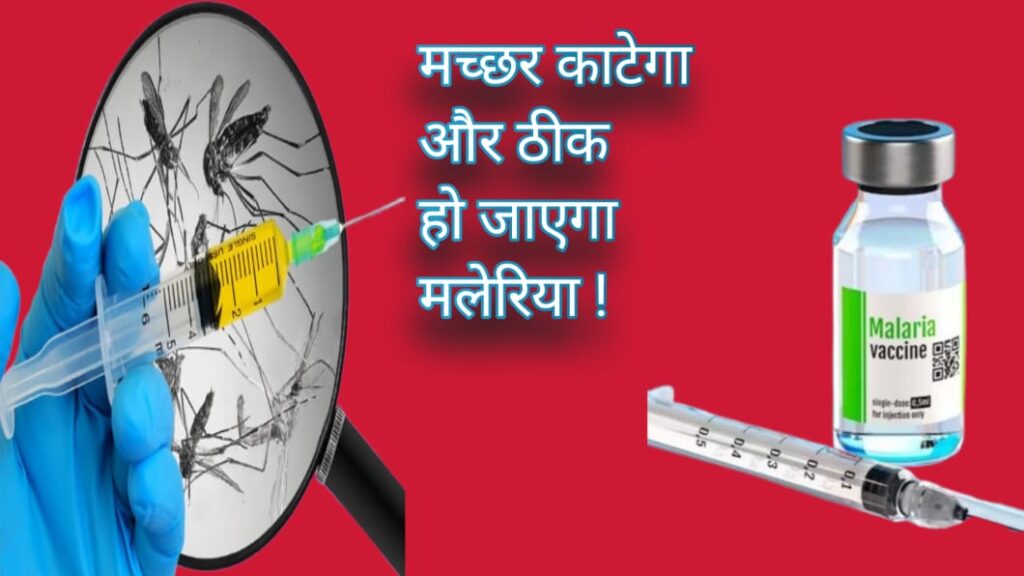Malaria New Discovery and Information
R21/MATRIX-M
Malaria Vaccine is a serious and sometimes fatal disease that spreads through mosquito bites. According to WHO, millions of people are affected by malaria every year, most of whom are in Africa and Asia. To prevent this disease, a new malaria has recently been developed which can help in reducing cases and mortality due to it.
You should know this about
Malaria is a deadly disease that spreads through mosquito bites. This disease is caused by a parasite called Plasmodium. This disease spreads through the bite of an infected female Anopheles mosquito.
Common symptoms of include high fever, chills, muscle pain, vomiting and fatigue. If not treated timely, this disease can be fatal.
New a major breakthrough
The World Health Organization has recently approved the first widely used . The name of this vaccine is -RRS.S/AS01 which is known as Mosquirix. This vaccine has been proven to prevent severe cases of malaria, especially in children.
Features of the RTS,S/AS01
1 Efficacy: This protects against Plasmodium falciparum, the most common and deadly type of malaria.
2 Dosage: This requires four doses.
Benefits
- Reduction in severe malaria cases in children.
- Reduction in admitted to hospital.
- Reduction in mortality.
New R21/Matrix-M
Recently a new R21/Matrix -M has been developed which has been approved by WHO in October 2023. This vaccine is considered more effective in preventing malaria
R21/Matrix-M Features
High efficacy: The efficacy of this has been found to be more than 75% in clinical trials.
Dosage: It also requires four doses.
Low cost: This is inexpensive, which allows it to be widely distributed in poor countries.
Benefits of vaccine
- Mortality rate
- Prevention
- Reduce burden on health system
Condition of malaria vaccine in India
The malaria status in India has made significant progress in recent years. The R21/Matrix-M malaria jointly developed by the University of Oxford and the Serum Institute of India (SII) has been approved by the World Health Organization (WHO).
This is particularly effective for children aged 5 to 36 months, who are most affected by malaria.
Measures such as insecticide-treated mosquito nets and indoor residual spraying (IRS) are also playing an important role in malaria prevention in India.
Challenges and the way forward
- Logistics: Delivery of remote areas.
- Awareness: Raising awareness about vaccine in the community.
- Continuous monitoring: Monitoring the efficacy and safety.
The unopened pink coloured buds of cloves are found in evergreen cloves trees. Same as the other spices, they are available thought the year. read more…
Two malaria vaccines, RTS,S/AS01 and R21/Matrix-M, are recommended by the World Health Organization (WHO) for preventing malaria in children, particularly in regions with moderate to high transmission. RTS,S was the first malaria vaccine to receive WHO recommendation in 2021, while R21/Matrix-M was recommended in 2023. Both vaccines have demonstrated high efficacy in clinical trials, reducing malaria cases by more than half in the first year after vaccination. The R21 vaccine, in particular, has shown up to 80% effectiveness when administered with a booster dose
Minimum qualification for admission to diploma in Pharmacy part pass in any of the following examination with Physics, Chemistry and Biology or Mathematics.read more…
Over view
Malaria vaccine development has been underway since the 1960s and has seen significant progress in the last decade. October 6, 2021 was a landmark day in malaria vaccine development when the World Health Organization (WHO) issued a recommendation for the widespread use of the RTS,S/AS01 (RTS,S) malaria vaccine among children living in sub-Saharan Africa and other regions with moderate to high P. falciparum malaria transmission. Two years later, WHO approved a second malaria vaccine (R21/Matrix-M) for use in malaria-endemic countries.
